Are there any white spots on the map? Or to put it another way: Do you know the old kingdom of Guge? Once it was the centre of a high culture. Today, however, it is located away from most tourist routes in western Tibet - one of the most remote regions on earth. Embedded in a seemingly unreal canyon landscape with a panoramic view of the Himalayas, the old kingdom will amaze you. Join us on a discovery tour to a worthwhile and little-known destination in Tibet. Follow me in my article on the sources of Tibetan Buddhism to the forgotten kingdom of Guge in western Tibet.
Non-solicited, unpaid advertising. This article contains affiliate links*, marked with an asterisk.
Content
No Pictures!
A Memorial against Violence and Destruction?
Short History of the Kingdom of Guge
Ruins of Tsaparang
Tholing Monastery in Zanda
Approach - A long Way to Guge
No Pictures!
In the Red Temple of Tsaparang the light is dim, the atmosphere mystical. The sign that hung on one of the wooden pillars for the temple roof was clear: "No Pictures! I had already suspected it before. In most monasteries and temples in Tibet, photographing inside is not allowed. But sometimes it is allowed for a small fee of 10 to 20 yuan. I would have liked to pay them. After all, it also benefits the preservation of the monasteries. The temples of Tsaparang could well use this money for a future restoration.
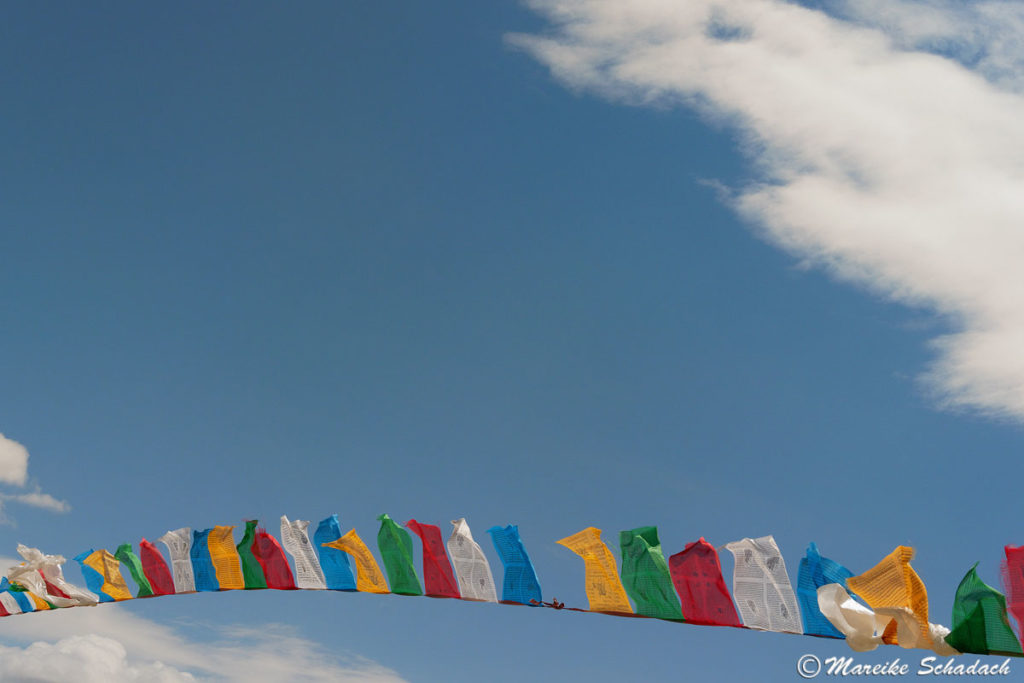
A Memorial against Violence and Destruction?
The destruction of the Tibetan temples during the Cultural Revolution is still clearly visible in this part of Tibet. Because only three years earlier, in 2016, was it begun to partially remove the rubble. Fragments of the Buddha figures were stacked in the middle of the Red Temple. Broken heads balance on the tops of the stone mountains. On the walls hang body parts of destroyed figures and let me think of a massacre.
The White Temple also seems empty. Only a small part of the statues has been reconstructed so far. This makes the artistic murals even more effective. The combination of the art of the old high culture and the visible destruction from the years of the Cultural Revolution irritates and fascinates at the same time.
But perhaps something will soon change about this seclusion. The overland road to Zanda is constantly being extended, in Zanda itself roads are asphalted, the new buildings sprout like mushrooms from the ground. Many Han Chinese push forward to Zanda and open shops, hotels and restaurants. Meanwhile there are hotels and restaurants here, in the outermost Tibet, whose menus are only in Chinese. A new challenge for the old kingdom of Guge.
Of all the temples I have seen on my Tibet journey, the temples of Tsaparang have touched me the most. They were like a memorial against violence and destruction. I managed to get a photo from the outside into the interior of the Red Temple, which might give you a small impression of the place. I would have liked to show you more pictures, but instead of the photos this time the texts must let pictures develop before your eyes.

Short History of the forgotten Kingdom of Guge in western Tibet
The old kingdom of Guge, founded in the 11th century, is today partly in western Tibet and partly in India. Yeshe Ö, the king of Guge, sent the monk Rinchen Zangpro to India for studies. Rinchen Zangpro later became the key figure in the introduction of Buddhism in Tibet in the 11th century. He translated Sanskrit texts and built 108 monasteries. Among them also those of Thöling and Tsaparang. He had the famous wall paintings made by artists from Kashmir. Later, at the instigation of Rinchen Zangpro, the great Indian scholar Atisha was invited to Tibet. Rinchen Zangpro and Atisha created the basis for the 'second' and permanent spread of Buddhism in Tibet here in Guge.
In 1624, however, the Tibetan kingdom of Guge disintegrated after a siege by the Ladakhis. The king of Guge and his family were captured and taken to the capital of Ladakh. Guge then came under the rule of Ladakh and lost its importance as a cultural centre.
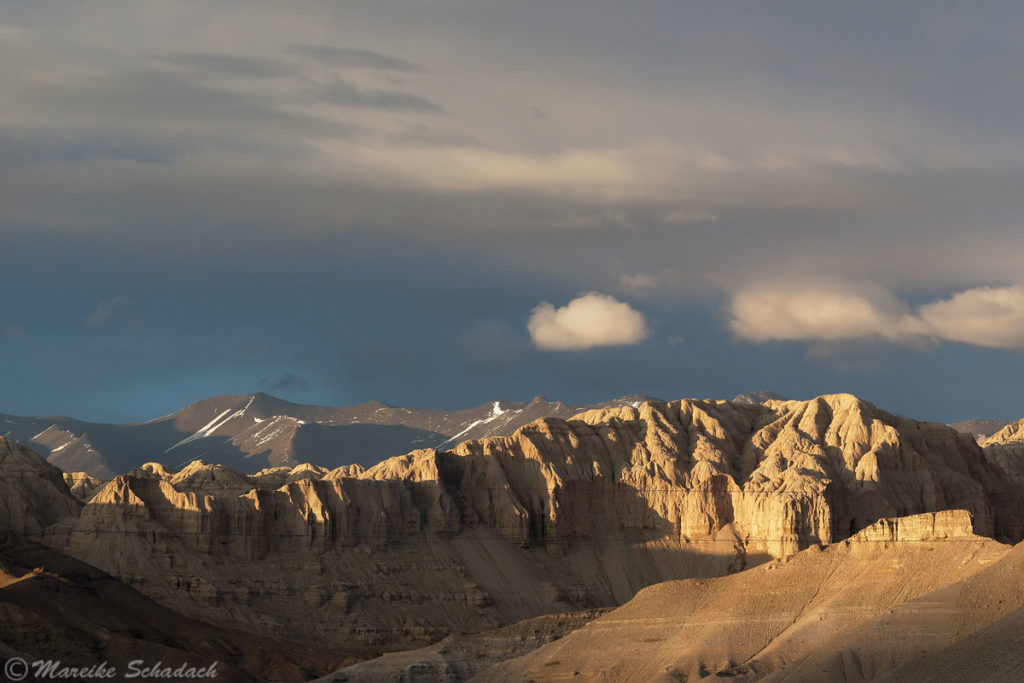
Ruins of Tsaparang
Tsaparang was the secular capital of the former kingdom of Guge in western Tibet. The seat of the king was at that time the citadel. This fortress from the 9th century is enthroned high up on a 200 meter high mountain. An ascent to the citadel is strenuous, but you will be rewarded with breathtaking views and insights into the history of western Tibet. Here you can read why a visit to the ruins of Tsaparang should definitely be on your to-do list for Tibet and what you can see here in the forgotten kingdom of Guge.
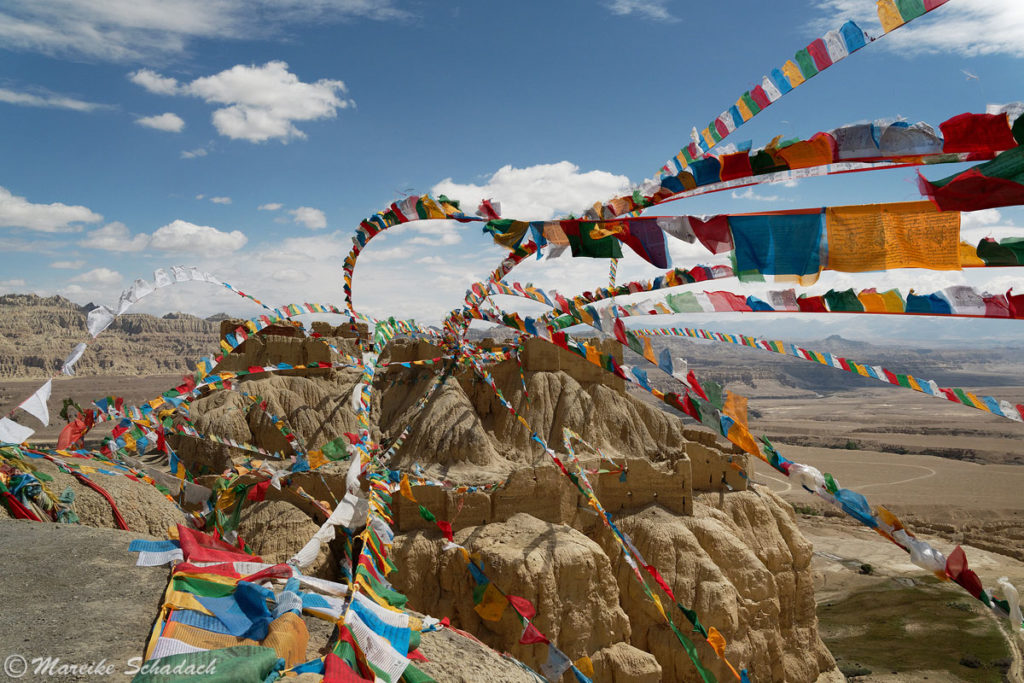
The Tholing Monastery in Zanda
The Tholing monastery from the 9th century is a Buddhist monastery. It was also the religious centre of the old kingdom of Guge. The monastery is famous for its partially preserved murals and has been on the monument list of the People's Republic of China since 1996. If you visit the forgotten kingdom of Guge in western Tibet, you should also visit Tholing Monastery. Here you can find out more about Tholing Monastery.

Approach - A long Way to Guge
The starting point for our visit to the ancient kingdom of Guge was the city of Zanda (3,760 m altitude). The city is located about 1.500 km west of Lhasa and 250 km southwest of Darchen. It was built next to Tholing Monastery and is now the new capital of western Tibet, consisting of a few shops, hotels, restaurants and two army bases. For the journey from Darchen you should plan best a whole day.
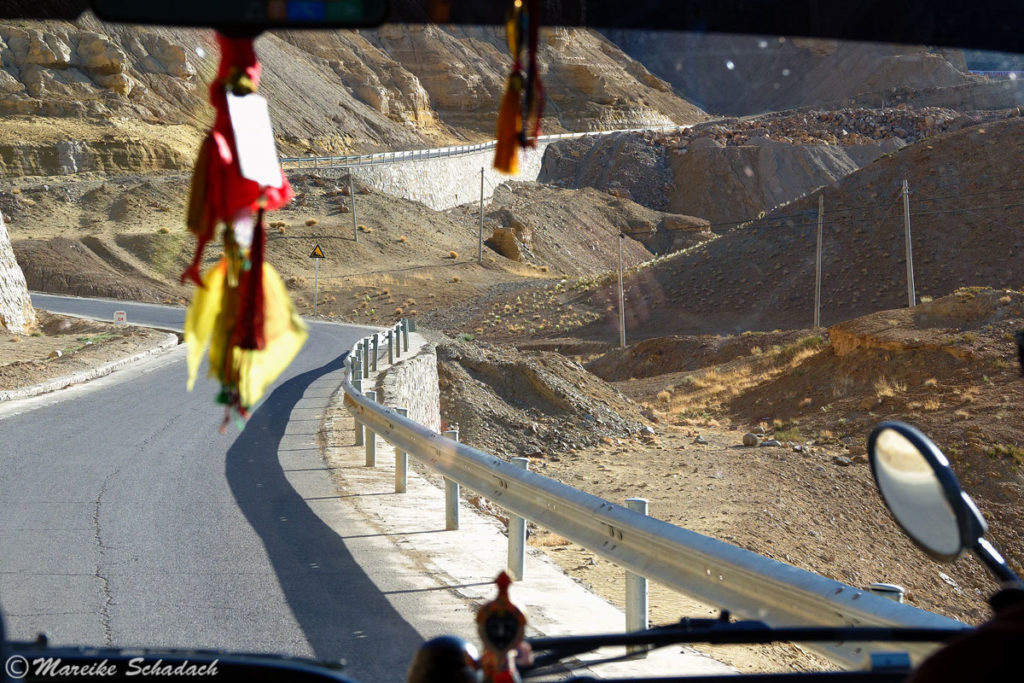
The journey first leads through a rarely visited nomadic region. After the last pass of 5.166 m altitude you have a panoramic view of the western Himalayas in Ladakh. Especially the viewpoint "Tibet Clay Forest of Zhada", a geopark, invites you to a stopover.
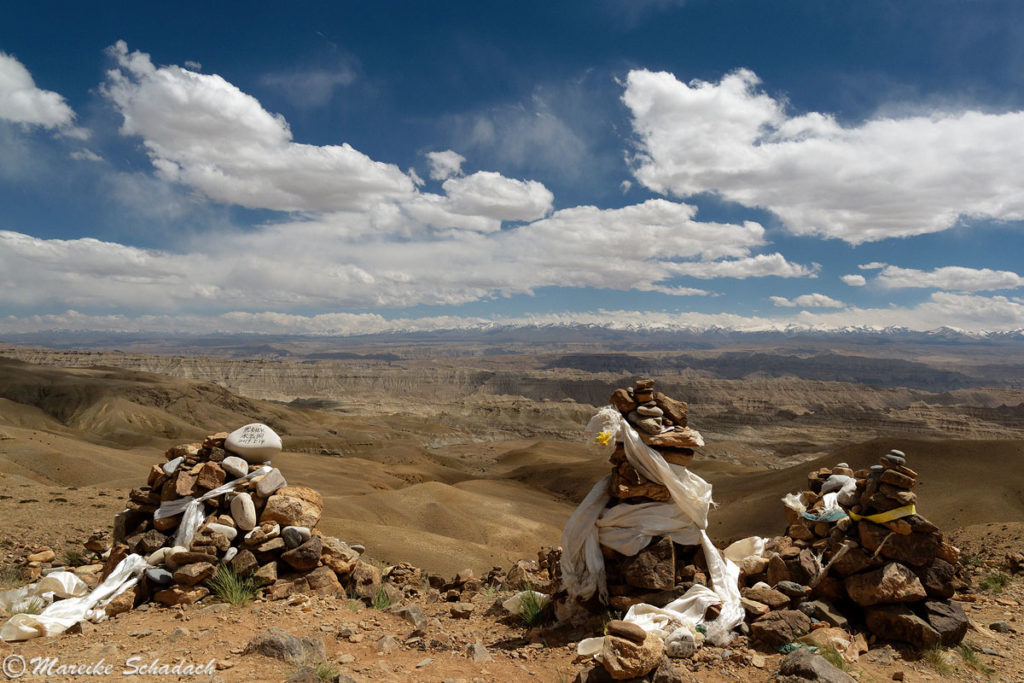
Over the centuries, wind and water have created a wild canyon landscape from the sand and loess soil, in which bizarre forms such as earth roll rise up. From a distance, the vertically towering rocks look like trees, hence the name "Clay Forest".
Then down the pass we take winding roads to the valley of the river Satluj. It is a real pleasure to drive along here, because behind every bend there are new and surprising views.
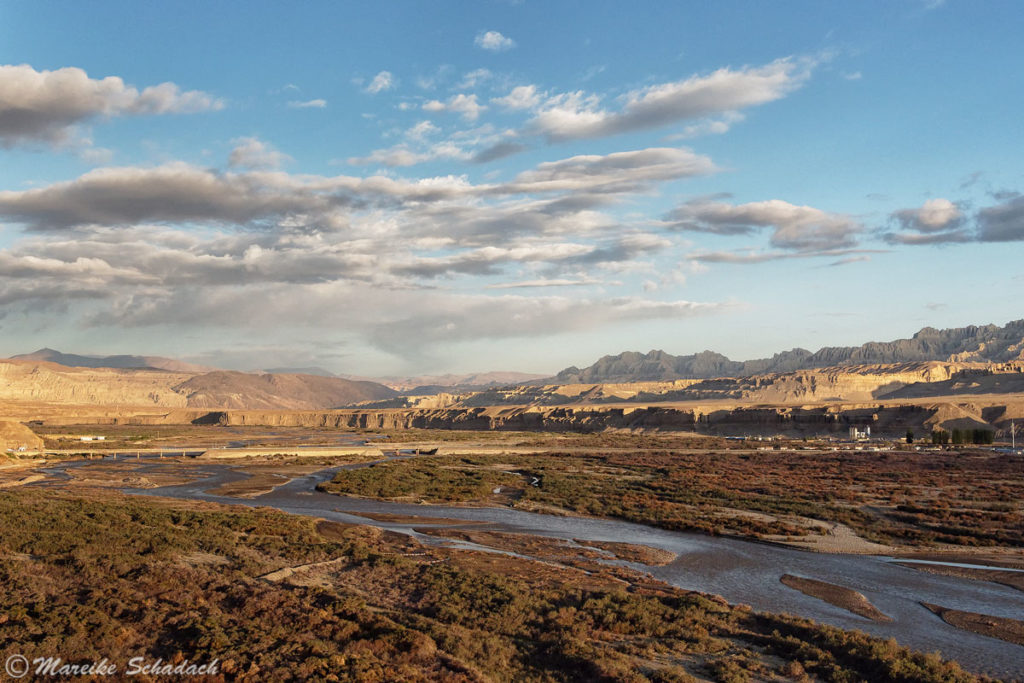
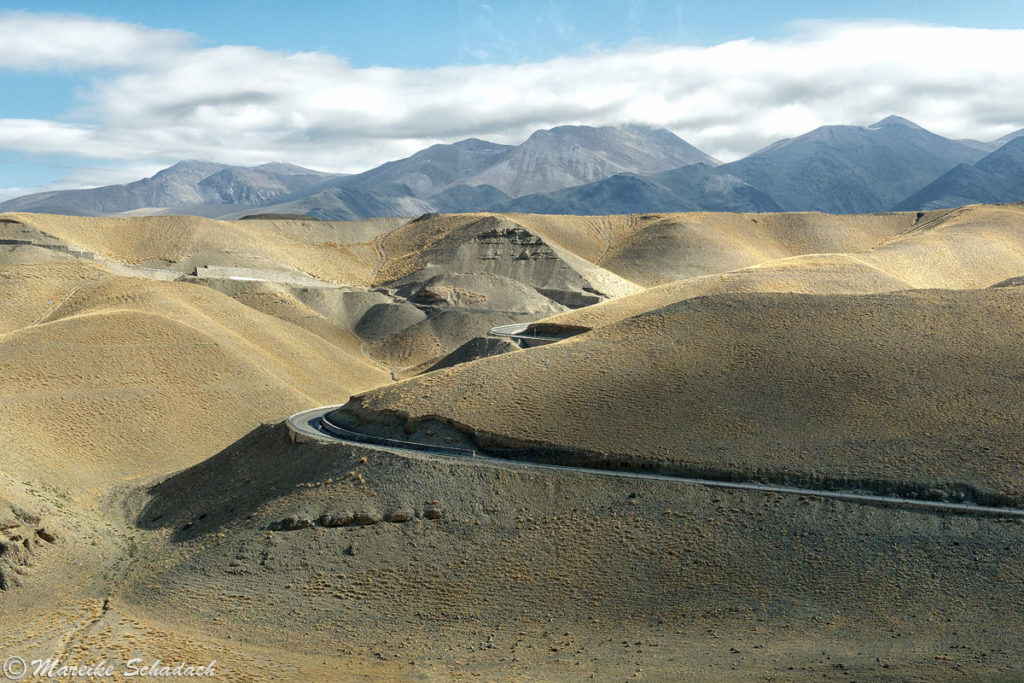
Book Recommendations for Tibet
You want to know where the journey goes? Then I can recommend these books* about Tibet.
You can order these books at Amazon with a click on the pictures. If you buy a product via one of these affiliate links, I get a small commission and you help me to keep filling Fernweh-Motive with interesting articles. The product will not be more expensive for you.
Have you yourself ever been to Western Tibet and seen the old kingdom of Guge? How did you like it? Do you have any questions about my article or suggestions? If so, please write me a comment!
Do you want to know when there are new articles on my blog? Then follow me on Facebook, Pinterest or Instagram. I would also be very happy if you share my article with your friends.
Recommendations for further Reading
Are you as fascinated by the mountains in Tibet as I am? Then you will like my two articles about a Trekking Tour around Mount Kailash or about the highest Monastery in the World at the Foot of Mount Everest..


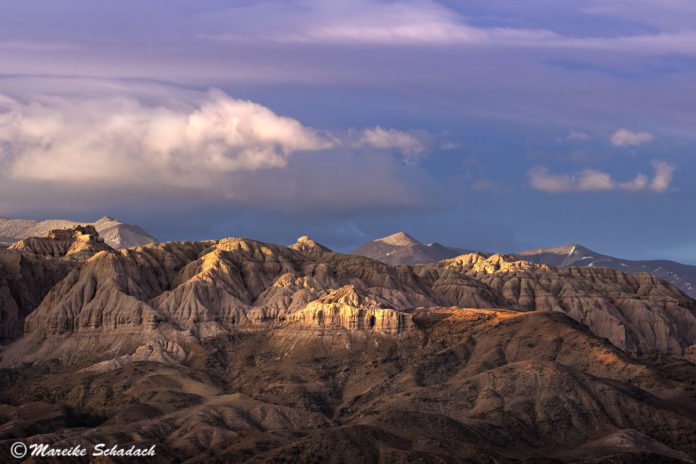



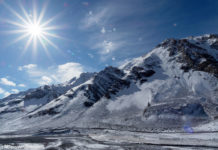

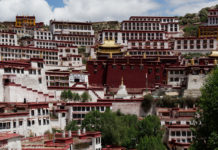
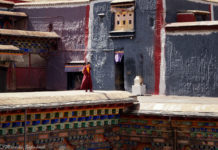

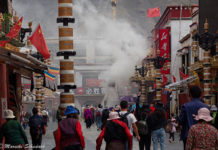
Tolle Bilder! Toller Bericht. Kannst du vielleicht verraten, in welchem Monat du in Tibet gewesen bist und welchen Anbieter du genutzt hast?
Hallo Vroni, vielen Dank für dein Feedback, freut mich, dass dir mein Artikel gefällt. Ich war Ende Juni/Anfang Juli in Tibet und der Anbieter war Tibetan Guide. Hier der Link zu deren Seite: https://www.tibetanguide.com/
Viele Grüße
Mareike
Hallo Mareike, vielen lieben Dank für die Rückmeldung 🙂
Viele Grüße
Vorne